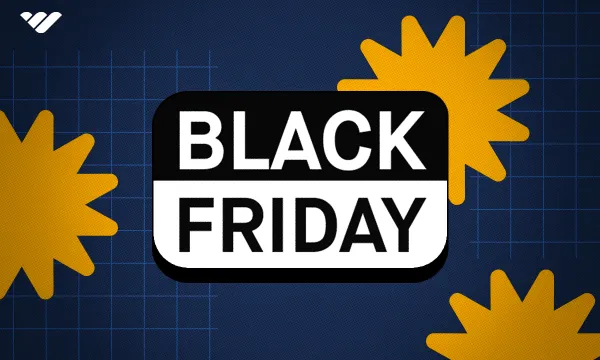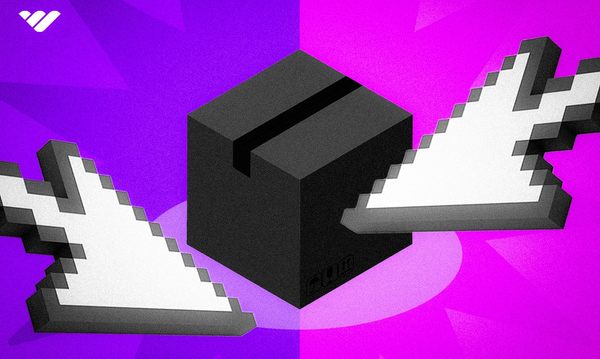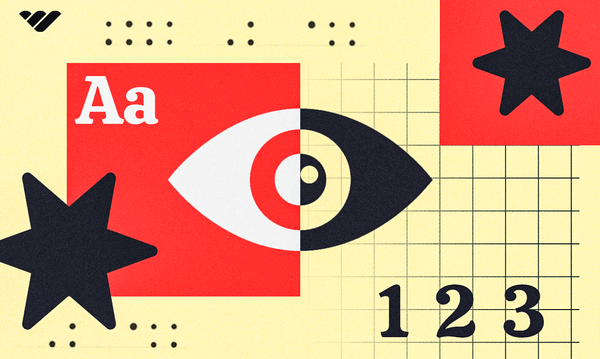When you’re developing a business, it’s not just social media and branding that you need to think about. Deciding on your manufacturing and production is another important consideration.
If you decide to use an external manufacturing company, you’ll need to consider which type of production is right for you. There are a couple of different options available, depending on your needs. These are “white label” and “private label” products.
So, what are the differences between the two options? What are their pros and cons? In this post, we’ll cover everything you need to know about white label vs private label production, including key examples to inspire you.
Jump ahead to:
- What is White Labeling?
- What is Private Labeling?
- Commonly Asked Questions About White Label vs Private Label
- White Label vs Private Label – Which is Right for You?
- Setting Up a White Label vs Private Label Brand
- Launch and Scale Your Business with Whop
What is White Labeling?
With white labeling, the manufacturer creates standardized products, which are then distributed to and sold by different companies. Brands that sell white label products can’t change the products themselves, but the packaging and labels can be customized to their branding.
So, in essence, the product stays the same, but you can add your brand logo and styling to the packaging. You can also decide on the right pricing for your brand.
Pros of white labeling:
- Quick production turnaround
As white label products are standardized, they don’t take as long to produce as bespoke items. That means you can sell your products as quickly as possible. - Reduced production costs
Less customization options can be a benefit, if you’re looking for reduced production costs. - Good for branded products
Despite the minimal customization options, you can add your branding to white label products. That makes them perfect for creating branded products for your business. With these designs taken care of, you can focus on other areas of your business, such as social media marketing.
Cons of white labeling:
- Few options for customization
With white labeling, you’ll have little control over the products themselves. So, if you’re looking for something truly bespoke, it won’t be the right choice for your brand. - Varies in terms of quality and pricing
The quality of your white label products will ultimately depend on the manufacturer. Some manufacturers will also be more expensive than others. You’ll need to research carefully to find the right provider.
White labeling for SaaS, apps and digital software
White labeling isn’t exclusive to physical products either. There are also companies that sell white label SaaS, apps and other forms of software to businesses. These businesses can then add their own company branding, and sell these digital products to their customers.
Some businesses that operate in a particular industry, such as marketing, use white label software as solutions to sell on to their clients. White label software can include chatbot, social media marketing, and email marketing platforms, among others.
If businesses don’t have staff with specific experience in coding, this can be a great solution to develop their own software quickly. However, naturally, there aren’t as many customization options as with a private label software, or one made by the company itself.
White label examples
Medication
One of the most famous examples of white label products is medications. When a company develops a medication, the patent for their product only lasts a set period of time. Once this period ends, other companies can sell the medication under a generic name at a cheaper price.
For example, ibuprofen 200mg tablets are sold under brand-names including Nurofen and Advil. Whilst some of these companies produce the medications themselves, many brands buy their white-label medicines from manufacturers.
Food and drink
There are many food manufacturers who produce white label food products that can be packed in branded packaging and sold on to niche customers. For example, a company that grows and produces herbs and spices could sell their products to brands in plain jars. Branded packaging can then be added to the products.
Ecommerce and dropshipping
Print-on-demand businesses, such as Printful, also operate on a white label model, though with many of the customization and exclusivity aspects of private labeling too. They manufacture products, with uniform styles (such as short-sleeved white t-shirts), and sell them on to businesses with their branding. The core products remain the same, but businesses can put their unique designs or logos onto the products. Printful take care of the manufacturing and shipping stages, so brands can focus on the other areas of their business.
Software
Many businesses sell white label software rather than physical products. For example, WotNot sells a white label chatbot platform that companies can customize with their branding and sell on to their customers. Vendasta offers a similar service, but with marketing automation software instead.
What is Private Labeling?
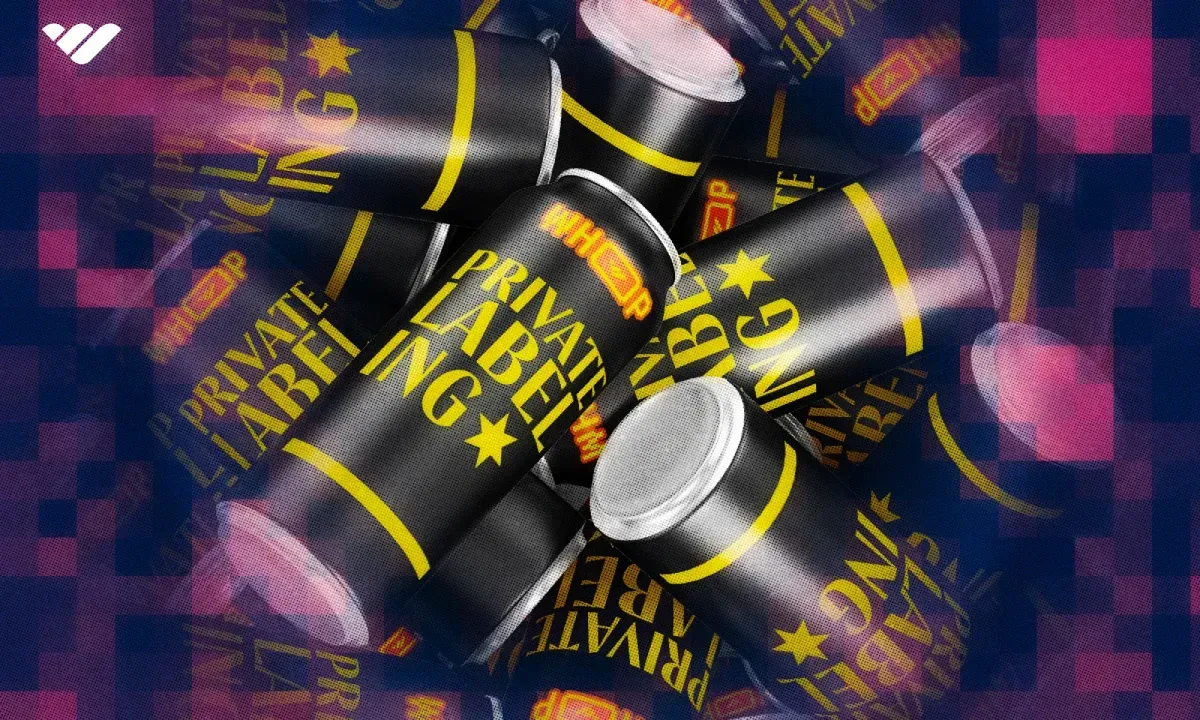
With private labeling, the manufacturer creates products which are unique to a specific company. The company can brand the products as their own, and sell them exclusively. This is in contrast to white labeling, where a manufacturer creates generic products to be sold by various retailers.
The company can also request more specific details about the design and packaging.
Pros of private labeling:
- Opportunities for customization
Whilst white label products typically have very limited customization options, you can do much more with private label products. - Stand out against your competitors
With private labeling, you can rest assured that your products are unique to you. This helps you to stand out from the crowd in the market. It also ensures that your competitors won’t be offering anything too similar. - Maximize profits
Private labeling enables you to sell a unique product that’s tailored to your brand without the hard, time-consuming, and expensive work of self-production. This allows you to maximize your profits and set a price that works for you.
Cons of private labeling:
- In-depth manufacturing processes
As private label products are customized, this requires bespoke manufacturing. This process can be expensive, as well as time-consuming, adding to your costs and production time. - Higher costs
Creating bespoke products naturally comes with added expense. You’ll need to think about how important customization is in relation to your costs. - More labor intensive
As you have more control over the design and manufacture of your products, you’ll naturally need to conduct more research into, for example, the interests of customers in your niche. This takes more of your time away from other aspects of your business.
Private label examples
Kirkland Signature
Leading US retailer Costco has a well-known private label, Kirkland Signature. This label is associated with low costs for the consumer, but high-quality products. Manufacturers for this brand include huge household names, including Starbucks and Duracell. Starbucks produces several of the products in Kirkland Signature’s coffee line, whilst their line of batteries are produced by Duracell.
Trader Joe’s
Another major US retailer, Trader Joe’s grocery stores are known for their high-quality private label products. These famous products have been manufactured by leading brands, including Naked Smoothies.
Fashion brands
Outside of groceries, private label products are popular within the fashion industry. For example, Apliiq provides digital and screen-printed products, along with private label tags, so businesses can create their own unique fashion brands.
Makeup products
Private label makeup brands order unique cosmetic products from manufacturers. Their manufacturers create customized formulations, and the packaging will feature the brand’s logo and design. These are often popular as a side business for beauty influencers and makeup artists.
Commonly Asked Questions About White Label vs Private Label
If you’re researching white label vs private label products, you might still be unsure on the difference between the two. The terms are often confused, or viewed as interchangeable. Demystifying white labeling and private labeling can help you to figure out the right option for you.
Is private labeling white label?
Although the two terms are often used interchangeably, there are clear differences between private labels and white labels. White labels typically resell standardized products produced by other companies. These products are not exclusive, and are usually sold by multiple different companies.
Meanwhile, private labels are more exclusive. They’re similar in the sense that they have been produced by a manufacturer, and then sold by a different brand. However, in this case, the products are customized and tailored to the brand that sells them. This means they’re exclusive to just one brand, and won’t be sold elsewhere.
What is considered “private label”?
Private label products are produced by a manufacturer, and then sold on by a different business. These products are tailored to the brand, and typically customers won’t be aware of the separate supplier.
Products that are designed, produced, and sold by the same company would usually not be considered as a private label. That’s because these brands haven't used an external manufacturer. Similarly, if the brand uses a manufacturer, but for generic products that are resold by other companies, then this would be white label, rather than private label.
Is white labeling illegal?
Whilst some are under the misconception that white labeling is illegal, it’s actually perfectly legal. It’s not illegal to sell on products that are created by another manufacturer. However, you do still need to be careful to meet other legal requirements.
For example, you must ensure that your packaging and logo are distinct enough from other brands. Otherwise, you could be at risk of misleading consumers, and even face copyright disputes.
White Label vs Private Label – Which is Right for You?
White label and private label businesses are diverse, with many pros and cons. But which is the right choice for your brand? There’s no one set answer. You’ll need to consider which works best for your circumstances and business-type.
| White label | Private label | |
|---|---|---|
| Exclusivity | Standardized products sold to multiple retailers. | Unique product line sold on exclusively to a single retailer. |
| Pricing | Generic product, so has a lower pricing value. | Exclusive product, so has a higher value. |
| Customization | Little to no customization options. Brands can add their branding afterwards. | Manufacturer tailors the products to your brand, so more customization options. |
| Research | Products are standardized, requiring little research. | Unique products require a level of market research beforehand. |
| Financial investment | Lower costs as products are generic with little customization. | Higher investment required as products need to be customized. |
| Production times | Fast production. Quick and easy to bring products into the market. | Slower production due to customization. |
| Market entry | Takes less time to enter the market, but products are less likely to stand out. | High quality and customization help to build your brand. |
| Manufacturer relationship | Generic products are sold to different customers. | More interaction with manufacturers, for example, to specify custom features. May require a more complex contract. |
| Best for… | Businesses looking to make a quick entry into the market. Start-ups with less capital to invest upfront. | Established brands aiming to create a custom label. Businesses looking for more customization options. |
Setting Up a White Label vs Private Label Brand
Now you have a clear overview of the differences between white labeling and private labeling, which should you pursue, and where should you start?
To make a start on setting up your business, there are some steps you’ll need to take.
- Research the market and decide on a niche that suits you
- Find a high quality manufacturer
- Decide on your pricing
- Develop your logo and branding to include on your products
- Order a sample batch to check before you buy
- Set up an online store
- Make an order or use a print-on-demand service
- Create a marketing plan to promote your brand
If you’re looking to get started quickly in the market, then a white label brand could be the best option. For brands searching for something more unique, then a private label is the way to go.
Launch and Scale Your Business with Whop
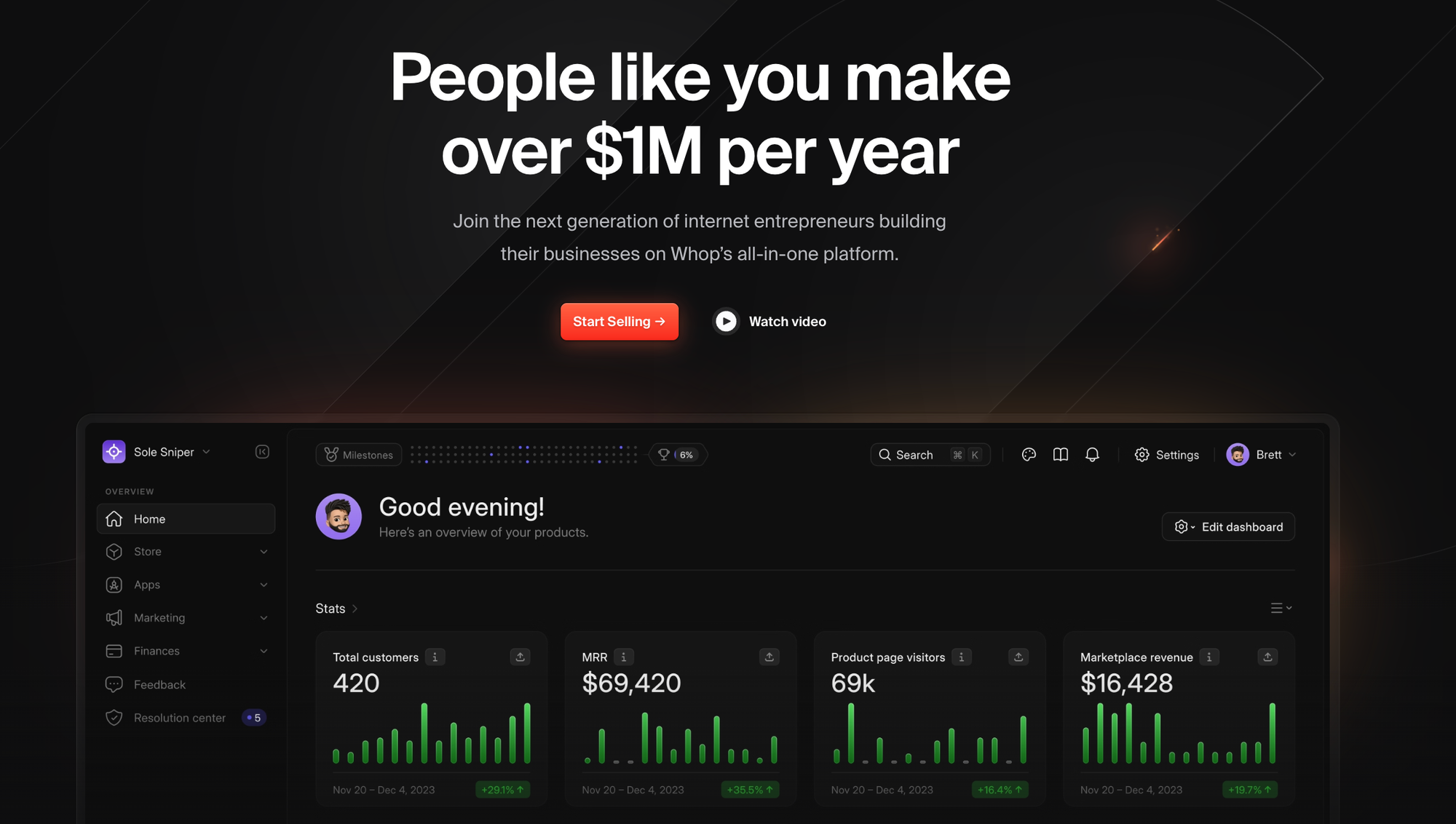
Whether you're set on white label or starting up a private label brand, you need to find the right platform for your products. If you're planning on selling software, digital products and more, then Whop is the right choice for you.
On Whop, entrepreneurs can sell a broad range of digital products, from access to exclusive Discord communities to software and files. Plus, with Whop, you’ll be supported with boosting your growth and skyrocketing your social media engagement. We’re also on hand to help with digital product fulfillment, community monetization, and more. Get the expert guidance and support you need to launch your business on Whop today.


